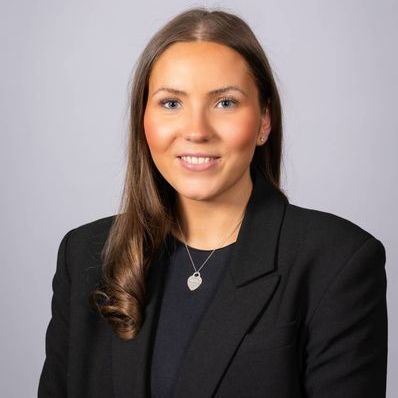Frontline Digitisation Supplier Engagement Forum
Chaired by Andreas Haimboeck-Tichy, Chair of techUK’s Health and Social Care Council and Director of Ecosystems at IBM, a wider range of members joined the Forum to listen to three expert panelists from NHSX share their insights on the challenges to frontline digitisation, and what suppliers should expect from the upcoming programme:
- David Howie, NHSX Chief Commercial Officer
- Dermot Ryan, NHSX Director of Frontline Digitisation
- Anna Hawksley, NHSX Assistant Director of Programmes
Dermot Ryan, NHSX’s Director of Frontline Digitisation, opened by outlining the aims of the programme of frontline digitisation, including going paper-free, establishing electronic patient records (EPRs), and achieving a broader cultural shift. He explained that this programme was the next stage in the journey instigated by the Global Digital Exemplar Programme and would run up until 2025-2026.
He spoke to some of the initiatives suppliers could expect from NHSX in the coming months, including the ‘technology fund prospectus’, digital maturity and usability assessments, and the publication of ‘What good looks like’ (WGLL).
WGLL aims to create a model for digital maturity within the NHS and is expected imminently – Dermot encouraged members to think about what role they might play in this project, emphasising that the initiative was about leaderships and ecosystems as much as digital capabilities. As a result of the “checkered history” of digitisation in the NHS, the programme will be insisting on board-level leadership and high levels of clinical buy-in.
When asked what people should expect from the WGLL document and what the key measures of success would be, he responded that it was not just about digital capability but about leadership, supporting staff, and changing the culture.
Dermot also touched on the move towards an integrated care approach within the NHS that is consistent with geography, outlining that NHSX’s investment and work would look to cement the place of these geographies, owing to the foundational role of digital in integrated care.
He highlighted that, now more than ever, working with the NHS presented a considerable reputational opportunity for suppliers. He outlined that suppliers should expect to see increasing levels of infrastructure, EPR-type capability, and resourcing demand in the market as organisations gear up to frontline digitisation, emphasising that NHSX were looking for competition and would be consolidating purchasing to a smaller number of places.
Transformation in procurement
This opening statement was followed by further detail on the changes to procurement that suppliers could expect to see from NHSX’s CCO, David Howie, who forecasted a change in tone and approach to the way NHSX engages with the market. He emphasised that some of this shift follows from broader transformation in NHS procurement, and would not be restricted to frontline digitisation.
David outlined that the move to Integrated Care Systems (ICSs) would result in a fundamental shift for providers in terms of care delivery, having a significant impact on buying. Taking the EPR market as an example, he noted that there would be a move from the same providers offering similar services to a much more dynamic and innovative marketplace, in which suppliers that enabled NHS services to spin up functionalities to support user needs would be prioritised. It is in this context that NHSX will look to support ICSs from the centre, providing a consistency of approach to enable better outcomes.
Emphasising this central support for ICSs, Anna Hawksley, NHSX’s Assistant Director of Programmes, spoke to the upcoming EPR usability survey and digital maturity assessment, which will initially focus on mental health, community and ambulance services. Anna emphasised that this would enable NHSX to feedback to suppliers on what products are required, with NHSX able to roadmap user needs and work with suppliers to meet them.
The panelists received several questions from techUK members, prompting a discussion on the difficulty of moving away from existing systems, expressing a desire to make it possible for trusts to be more agile, encouraging new functionalities. David again emphasised the importance of providing centralised support to help make this possible.
One member expressed concerns around centralisation inhibiting innovation. The panel responded that driving towards a commonality would be about enforcing standards around interoperability and moving towards the ability to strategically engage with vendors rather than point-by-point engagement at a trust-level. Standards would be enforced to reach the goal of driving a system which allows for local ability to spin up functionality very quickly.
Other questions touched on the need for supplier feedback, how the move to ICSs might align with social care digitisation, and how to ensure other services, such as ambulances, are considered as part of the approach. Full answers to these questions can be heard in the recording linked above.
The forum concluded with David Howie encouraging members to submit feedback on the format of the session and proposing an additional session, following the publication of documents such as WGLL.
This discussion was the first in a series of forums that will further collaboration and joint working on frontline digitisation between the tech industry and NHSX.












